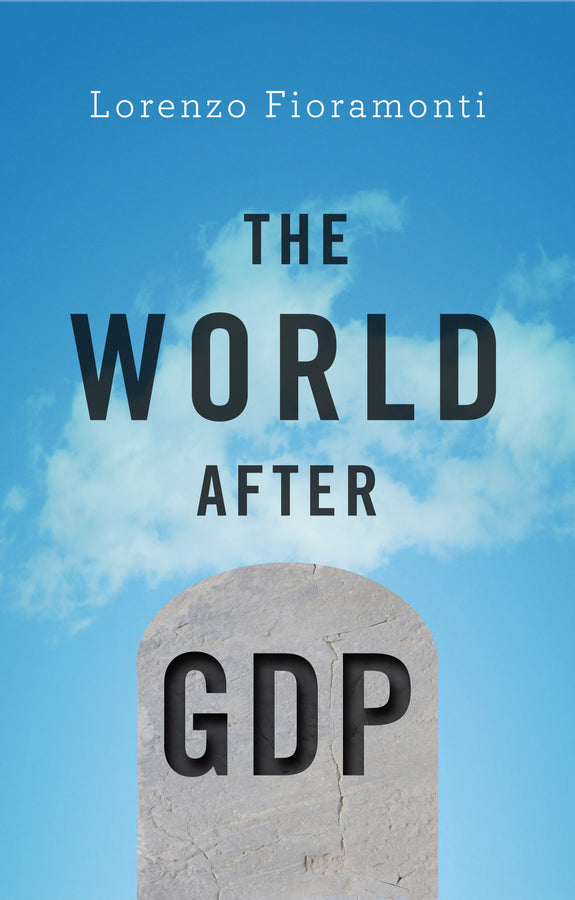Description
Discover 'The World After GDP' by Lorenzo Fioramonti, a groundbreaking book that challenges conventional economic wisdom and explores alternative measures of prosperity beyond Gross Domestic Product (GDP). This thought-provoking volume addresses the urgent need for a paradigm shift in how we evaluate progress and success in society. With soaring environmental crises and deepening social inequalities, Fioramonti articulates a visionary framework for rethinking our metrics through innovative governance and institutional reform. The book highlights inspiring case studies and pioneering research on alternative metrics that prioritize well-being, sustainability, and community empowerment. As you delve into this insightful work, you'll learn about the transformative power of small businesses, the essential role of civil society, and the possibilities for democratic evolution in a post-GDP world. With 240 pages of robust analysis and compelling arguments, 'The World After GDP' is essential reading for policymakers, scholars, and anyone passionate about building a fairer, more prosperous future. Order today and take the first step towards understanding a world beyond GDP.
Note: Shipping for this item is free. Please allow up to 6 weeks for delivery. Once your order is placed, it cannot be cancelled.
Condition: BRAND NEW
ISBN: 9781509511358
Year: 2017
Publisher: John Wiley & Sons (UK)
Pages: 240
Note: Shipping for this item is free. Please allow up to 6 weeks for delivery. Once your order is placed, it cannot be cancelled.
Condition: BRAND NEW
ISBN: 9781509511358
Year: 2017
Publisher: John Wiley & Sons (UK)
Pages: 240
Description:
GDP is much more than a simple statistic. It has become the overarching benchmark of success and a powerful ordering principle at the heart of the global economy. But the convergence of major economic, social and environmental crises has exposed the flaws of our economic system which values GDP above all else as a measure of prosperity and growth.
In this provocative and inspiring new book, political economist Lorenzo Fioramonti sets out his vision of a world after GDP. Focusing on pioneering research on alternative metrics of progress, governance innovation and institutional change, he makes a compelling case for the profound and positive transformations that could be achieved through a post-GDP system of development. From a new role for small business, households and civil society to a radical evolution of democracy and international relations, Fioramonti sets out a combination of top-down reforms and bottom-up pressures whose impact, he argues, would be unprecedented, making it possible to build a more equitable, sustainable and happy society.
Note: Shipping for this item is free. Please allow up to 6 weeks for delivery. Once your order is placed, it cannot be cancelled.
Condition: BRAND NEW
ISBN: 9781509511358
Year: 2017
Publisher: John Wiley & Sons (UK)
Pages: 240
Note: Shipping for this item is free. Please allow up to 6 weeks for delivery. Once your order is placed, it cannot be cancelled.
Condition: BRAND NEW
ISBN: 9781509511358
Year: 2017
Publisher: John Wiley & Sons (UK)
Pages: 240
Description:
GDP is much more than a simple statistic. It has become the overarching benchmark of success and a powerful ordering principle at the heart of the global economy. But the convergence of major economic, social and environmental crises has exposed the flaws of our economic system which values GDP above all else as a measure of prosperity and growth.
In this provocative and inspiring new book, political economist Lorenzo Fioramonti sets out his vision of a world after GDP. Focusing on pioneering research on alternative metrics of progress, governance innovation and institutional change, he makes a compelling case for the profound and positive transformations that could be achieved through a post-GDP system of development. From a new role for small business, households and civil society to a radical evolution of democracy and international relations, Fioramonti sets out a combination of top-down reforms and bottom-up pressures whose impact, he argues, would be unprecedented, making it possible to build a more equitable, sustainable and happy society.

